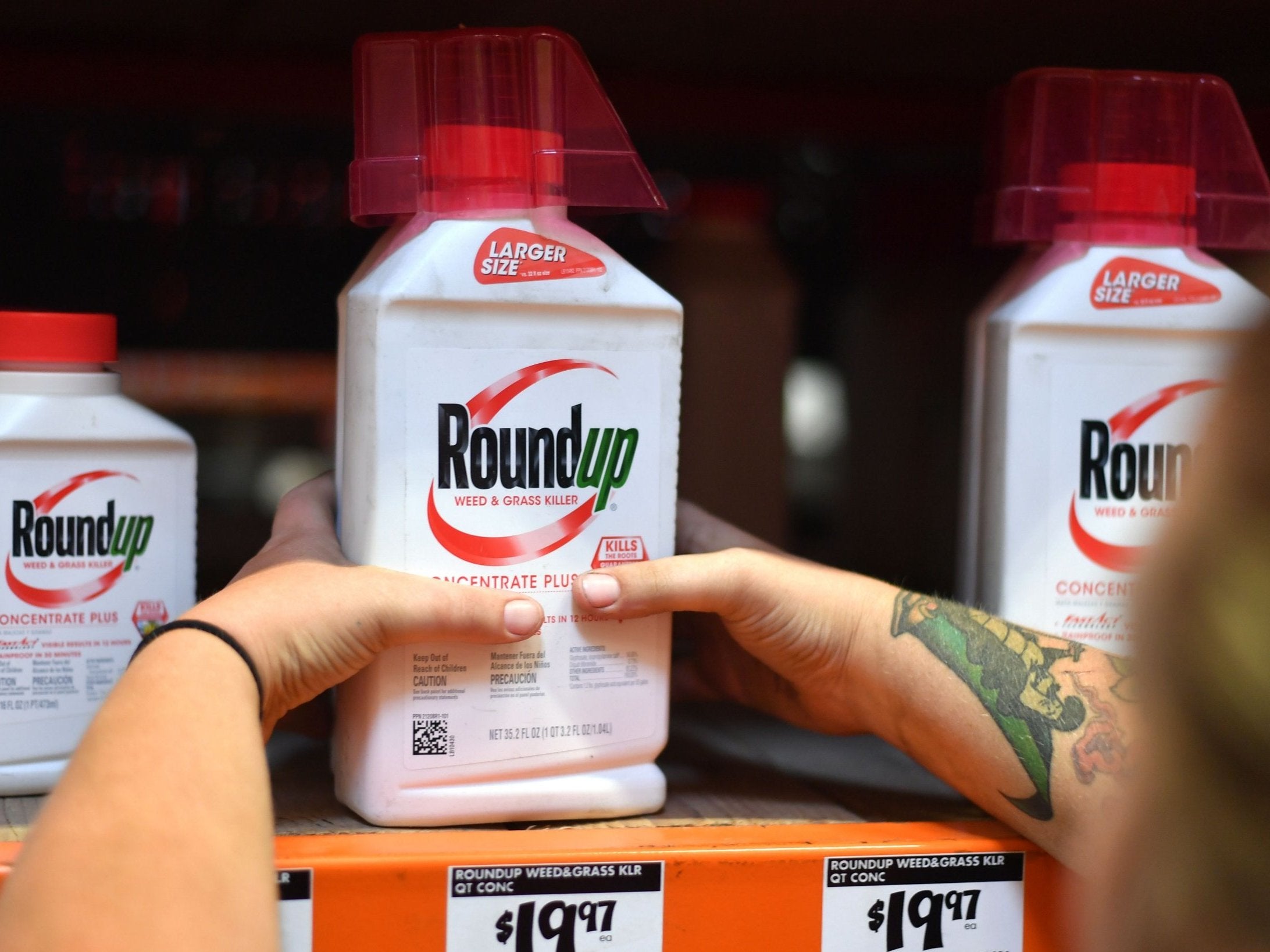Monsanto ordered to pay £1.5 billion to couple who got cancer from Roundup weedkiller
It comes as third and largest courtroom loss for agriculture company in less than a year
Your support helps us to tell the story
From reproductive rights to climate change to Big Tech, The Independent is on the ground when the story is developing. Whether it's investigating the financials of Elon Musk's pro-Trump PAC or producing our latest documentary, 'The A Word', which shines a light on the American women fighting for reproductive rights, we know how important it is to parse out the facts from the messaging.
At such a critical moment in US history, we need reporters on the ground. Your donation allows us to keep sending journalists to speak to both sides of the story.
The Independent is trusted by Americans across the entire political spectrum. And unlike many other quality news outlets, we choose not to lock Americans out of our reporting and analysis with paywalls. We believe quality journalism should be available to everyone, paid for by those who can afford it.
Your support makes all the difference.A couple who say the weedkiller Roundup Ready caused their cancer are to be awarded £1.5bn.
Alva and Alberta Pilliod, both in their 70s, won their case against agricultural chemical manufacturer Monsanto in the third and largest courtroom loss for the firm since August.
A jury in California on Monday found Monsanto was liable for the couple contracting non-Hodgkin’s lymphoma – a cancer that affects the immune system.
The jury also found its product Roundup had been defectively designed, that the company failed to warn of the glyphosate-based herbicide’s cancer risk, and that the company acted negligently.
German chemicals giant Bayer AG, which owns Monsanto, denies the allegations and insists the weedkiller is safe.
The Pilliods were awarded $2bn (£1.5bn) in punitive damages and $55m (£42m) in compensatory damages.
However, it is likely the damages award will be reduced because of US Supreme Court rulings that limit the ratio of punitive to compensatory damages to 9:1.
The couple allege the regular use of Roundup on their property between 1975 and 2011 caused them to develop cancers of the lymph system.
They filed their lawsuit in 2017 after Mr Pilliod was diagnosed with cancer in 2011, and Ms Pilliod in 2015.

Both of them are in remission but their trial was expedited because of the risk of a relapse and potentially shortened life expectancy.
Ms Pilliod called on Bayer to add a warning label to Roundup, saying she and her husband would not have used the product had it alerted them to a cancer risk.
“We’ve been fighting cancer for more than nine years now and we can’t do any of the things we wanted to do,” she said. “We really resent Monsanto for that.”
Bayer now faces more than 13,400 US lawsuits over Roundup’s alleged cancer risk.
Last August, former California school groundskeeper Dewayne Johnson was awarded $289m (£223m) after a jury also found Roundup caused his terminal cancer.
In March, another California man was awarded $80m (£61.8m) after a jury in San Francisco found the weedkiller caused his cancer. The company said it would appeal both decisions.
Bayer said in a statement on Monday that it was disappointed with the verdict and would appeal.
The company said decades of studies by itself and independent scientists have shown glyphosate and Roundup are safe for human use.
Bayer also pointed to several regulators around the world that found glyphosate was not carcinogenic to humans.
A spokesperson called the jury’s decision “excessive and unjustifiable”.
Associated Press contributed to this report

Join our commenting forum
Join thought-provoking conversations, follow other Independent readers and see their replies
Comments